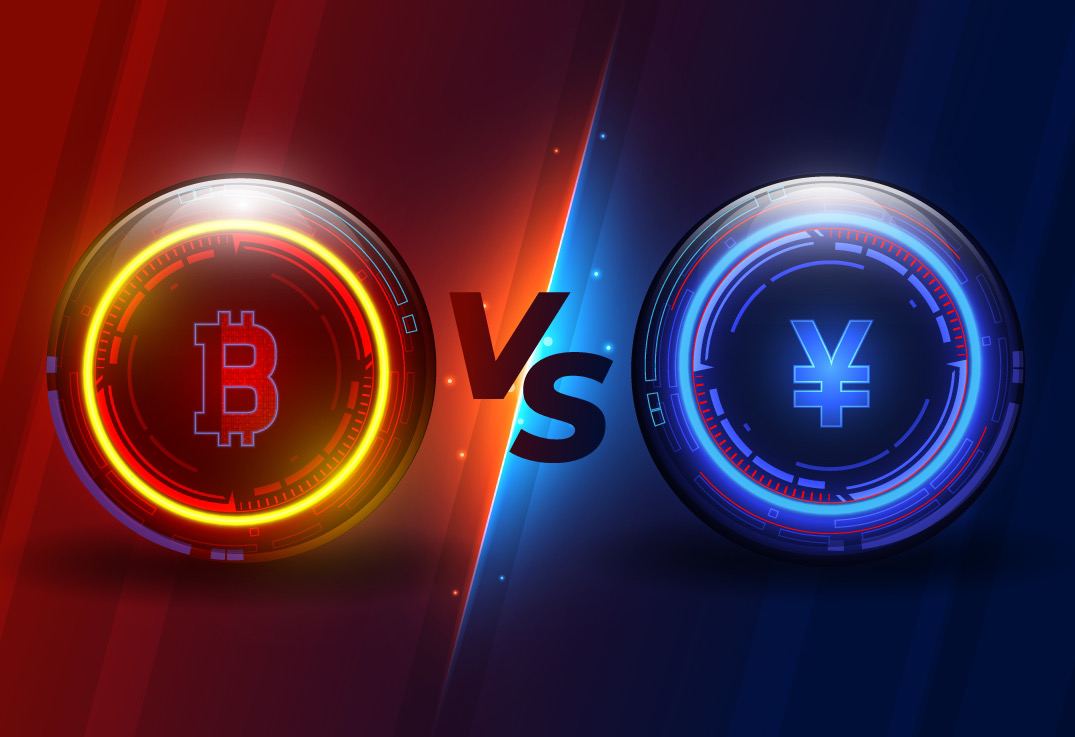Сryptocurrencies have been a craze for over a decade. Bitcoin, the eldest, most popular child in the cryptocurrency family, is a decentralized currency with no need for government support or the backing of a financial institution, blanket anonymity peer-to-peer payments in incognito mode. In short, every introvert and criminals’ paradise. The currency gave way to untraceable money, low-cost international transfers without a need for a middleman, and monetary anarchy. Also, Bitcoin can be invested in on the stock market, but more on that later.
Enter China in 2020 with a soft launch the digital Yuan, a centralized currency, backed by the Chinese government and People’s Bank of China. Only caveat, it’s still in the test phase and only on a national level for the time being. Many details are still up in the air, but here are a few features which are being taken into consideration: anonymity to those who prefer it in peer-to-peer transactions, and though its tech, it can still be used with no network connection making it just as strong as the paper money that backs it.
So, what are the pros and cons of each?
Let’s break down it down a little bit.
Strength of the currency
As mentioned, you have money backed by the government or money that gives the power to the people. To note their similarity, in both cases, the strength of the currency fluctuates. However, when the digital Yuan fluctuates, you still have the amount of money that is physically there. When Bitcoin fluctuates, on a global scale, it can be disastrous, or it can be marvelous as the monetary value of the bitcoin can be extremely high, dangerously low, or just right.
Stock market viability
Warren Buffet once said, “Only buy something that you’d be perfectly happy to hold if the market shuts down for ten years.”
As mentioned earlier, Bitcoin can be invested in on the stock market. Due to this, the ability of the value of Bitcoin to fluctuate makes an impact. The marvelous: in October 2019, some made millions in just a few hours when the Bitcoin stock rose nearly $3,000 within a day. The disastrous: when the stock dropped nearly $2000 overnight. So, while the price drop did wonders for traders looking to buy stock, it made nightmares for long-time investors at least for a short time.
As the digital Yuan is an offset of an official currency, it is not an entity that can be publicly traded on the stock market. This feature leaves the actual value of the money in its home country intact. So, if by some chance the stock market does indeed shut down, it seems pretty clear which currency would still hold its strength.
Currency accessibility
Bitcoin is much more readily available as a tried and true form of cryptocurrency accepted by big-name retailers and vendors worldwide. Innovators and developers are looking for ways to trade and sell the digital Yuan before its full launch which may not be until 2024. In terms of tech accessibility, Bitcoin can only be used with an internet connection whereas the digital Yuan can be used with zero signal.
So, which would you choose? A cryptocurrency that is tested but temperamental or the new kid on the block with responsible parents and stability?
